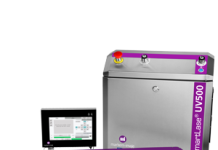Printing SA has outlined more guidelines – in this instance those concerning labour relations – to observe for both members and non-members during these times of economic crisis in the face of COVID-19.
In an effort to assist its members in navigating the numerous regulatory and legislative amendments that have been implemented since the National lockdown, Printing SA has been fielding a number of questions from members asking for guidance on how to deal with some of these issues as it is indeed unchartered territory.
Its staff have been working tirelessly to seek clarity on these questions and to ensure that the advice Printing SA are giving its members is in accordance with the true interpretation of the law. Printing SA will continue to update its members as and when its obtains clarity for some of the outstanding questions that are not addressed in this communique.
1. How do we handle staff with flu like symptoms either during or after the lockdown period?
In a situation where an employee has flu like symptoms upon returning to work, or makes contact with his employer to report that he has flu like symptoms:
1.1. The employer must, in terms of Regulation 4 (1) of the Disaster Management Act, refer an employee to undergo a Covid-19 medical examination/screening, and an employee cannot refuse to consent in this respect.
1.2. The Employee must be advised not to go to their doctor, but to telephonically contact the Covid Helpline 0800029999, or the Covid Whatsapp on 0600123456. He/she will be screened and referred to the closest test centre or otherwise advised what to do.
1.3. Where an employee tests positive for Covid-19, he/she must be quarantined for the prescribed period. UIF benefits in this respect can be applied for as an illness benefit in terms of a special fund created for this purpose. The procedure for this is not 100% finalised at this point in time and some confusion exists. We hope to receive further clarity on this soon.
1.4. Should an employee not test positive, he/she can be treated for flu/similar illnesses and such can be dealt with under normal sick leave conditions as set out in the BCEA.
2. I cannot afford to pay staff during a shutdown period, what can I do?
In a situation where it is economically impossible to pay employees, a special fund under UIF has been created as per the Covid19 Temporary Relief Scheme. Employers can apply for this by reporting their closure to mailbox Covid19ters@labour.gov.za. Although not ideal, the principle of no work no pay can apply.
3. Can I request my staff to take forced leave?
The current status-quo of the National Lockdown is on a no-work no-pay basis. Where an employer chooses to offer the alternative of taking annual leave in lieu of no-work no-pay and the employee agrees, whilst not ideal, the employee will at least be able to derive part of their income during this period. A consultation between the employer and employee is required.
4. Can I pay staff during the shutdown period and enter into an agreement to set it off against overtime still to be worked to ensure they are not out of pocket?
Yes, an agreement can be made, however, in accordance with section 34 (2)(d) of the BCEA the deduction may not exceed 25% of the employee’s normal take home remuneration. The Employer and the Employee should enter into an agreement by which they set out the particular extraordinary terms from which this advance payment on remuneration is stipulated. It should further stipulate that since the lockdown period is treated as a no-work no-pay situation, the Employer has agreed with the Employee to enter into a remuneration advance agreement. The agreement should stipulate the terms and the recovery terms from future remuneration.
There are a few critical points to bear in mind:
a. Do not rush into this for the moment, as you may not be able to recover the money from future earnings, due to the employee leaving your business for whatever reason.
b. It would be advisable to first establish the full content of the Government’s Temporary Relief Fund and the procedures for claims and payments. If not done, the Employee could earn more than what is due to him.
c. Remember that your monthly employees by now would have been paid for March and will have money to live from. The weekly paid employees would have had their payment in arrears for last week at the end of the week ending 28 March. Next week, the weekly paid employees will receive money as payment in arrears for the work performed during the week ending 28 March 2020. There is no rush to head into paying anything other than for work done right now. It gives you time to reflect as the Temporary Relief Fund procedures become clearer and then decide on a course of action.
d. Should you wish to pay your Employees any money out of goodwill, it does not have to constitute full pay either.
5. How do I pay staff and what are the forms to use?
https://www.labourwise.co.za/labour-news-teazer/uif-new-national-disaster-benefit
6. Days lockdown – is it annual leave or is it given days over and above normal leave?
https://www.labourwise.co.za/labour-news-teazer/who-pays-salaries-during-21-day-lock-down
7. Will the submission date for WSP & ATR to the FP&M seta be extended or remain the same?
An application has been made to the FP&M Seta to consider a later date. Once a reply is received it will be made public.
Forced Closure – COVID-19 TERS:
On 26 March the Department of Labour issued a notice, which set out the COVID-19 Temporary Employee/Employer Relief Scheme (aka, C19 TERS). In the opening paragraphs, the notice is very specific in dealing with the payment of salaries and wages during the lockdown period. It expressly states that in the event where an Employer can pay Employees, they are encouraged to do so; however, where same is not economically possible, government has created a special benefit under the UIF called C19 TERS.
Further, Section 3.1 of the notice states, where Employers, as a direct result of the COVID-19 pandemic, closes its operations for a period of 3 months or lesser and suffers financial distress, the company would qualify for the C19 TERS benefit. It is very important to note that the benefit is delinked from the UIF normal benefits. This in turn means that the rules which ordinarily apply in the UIF act do not apply in these circumstances. In addition, the benefit only covers the costs of salaries and wages for the employees during the temporary closure period. Employers are required to complete these documents, not employees.
Section 3.4 stipulates that the salary benefit is capped at an amount of R17,712 p/m per employee and that this benefit will be paid in terms of the income replacement sliding scale [38% (higher salary earners); 60% (lower salary earners)] as per the UIF Act. Further, Section 3.5 expressly states that the payment of the salary will not fall below the prescribed national minimum wage.
It is important to note that there are qualifying criteria that the employer needs to meet for the C19 TERS benefit to apply (refer to Section 3.7). Finally, the notice also referred to an Illness benefit (section 4), this is in respect of cases where an employee is in quarantine for 14 days due to the virus. Confirmation by both the employer and employee is required to accompany the application. In the event the 14 days period is extended, a medical certificate from a medical practitioner needs to be submitted for continued payment.
The C19 TERS Application Procedure:
1. The employer is required to send an email to covid19ters@labour.gov.za reporting the company closure in response to the National Lockdown directive from the President (stating that your company will be closed, the relevant closure period, and that you wish to apply for the temporary relief made available by TERS in respect to employee salaries/wages).
2. An automatic reply will be received as described here, which acknowledges the request for financial relief and gives a breakdown of the key documents to be submitted to a specific email address: covid19UIFclaims@labour.gov.za.
3. Finally, a Generic MOA in terms of TERS, which is an agreement between the employer, UIF and bargaining councils (where applicable) will need to be filled out, signed and submitted to email address: covid19UIFclaims@labour.gov.za. Please bear in mind that this is a crucial document and no payment will be made unless this is submitted. Once payment is made, the company is required to submit proof of payment as proof that the payment went to the Employees.
Having said the above, various questions have been asked around how the UIF fits into the picture -please note that the UIF is only as a means of processing the TERS benefit. The UIF credits of each employee is not considered or affected by the TERS payment; the UIF is used as a mere platform for verification and validation purposes.
Further, relief sought in terms of COIDA is ONLY available in the event where before, during or after the lockdown the virus is occupationally acquired – then only will an employee qualify for an illness benefit, under temporary disablement, in terms of COIDA. This relief is capped at a period of 30 days and includes medical aid, also for 30 days. This benefit will be looked at on a case by case basis, as per the prescription or advice issued by a medical professional; this will also be subject to are-evaluation in the event of permanent disablement. The benefit also makes further provision for death benefits to dependants of the employee in question.
Small businesses relief:
Finally, there have been numerous queries received from members in respect to additional benefits/relief available for their companies (not in relation to employee salaries). There are benefits/relief schemes in place, however, these are only available for small businesses/SMME’s. This relief is also industry specific, of which, the printing and packaging sector has been excluded from. However, this is not the end of the road, considering the President made mention of tax relief measures for small business, which will be in the form of a Debt Relief Finance Scheme. Once again there are qualifying criteria that are to be met, which will only be known upon release on Thursday 2 April 2020. For more information click here.
The Minister of Finance has released a tax relief measure, this pertains to businesses with an annual turnover of R50 million or less – this can be found here. Also refer to the explanatory notes here to this effect.
As always, Printing SA will attempt to provide our members with our understanding and interpretation of the emergency prescribed regulations. It is important to also note that these are extraordinary circumstances and thus the usual Labour Relations and Basic Conditions of Employment Acts are superseded in this regard. For more information on other regulatory notices please visit www.printingsa.org
Although Printing SA endeavours to supply correct and updated information relating to the COVID-19 prescribed government updates it does not guarantee the correct interpretation thereof, nor does it accept any liability for any information or statements supplied by external sources herein. The labour laws in South Africa change continuously and employers should stay up to date with new developments. We accept no responsibility or liability whatsoever for any adverse consequences that may arise, including but not limited to, financial loss, compensation orders or fines in this regard.
To submit your news please, contact journo@practicalpublishing.co.za
Read the top 5 stories weekly on WhatsApp or sign up to our newsletter.
PRINTING SA
+27112871160
info@printingsa.org
http://www.printingsa.org





















